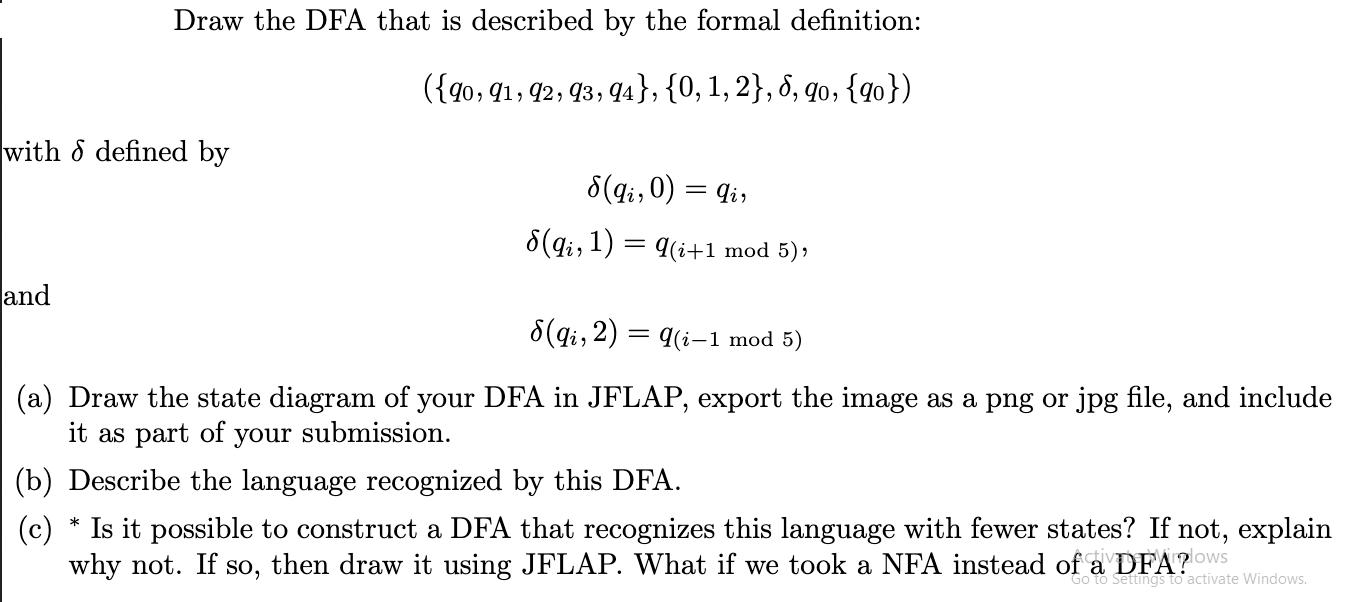Question
Draw the DFA that is described by the formal definition: ({90, 91, 92, 93, 94}, {0, 1, 2}, 6, 90, {90}) with d defined

Draw the DFA that is described by the formal definition: ({90, 91, 92, 93, 94}, {0, 1, 2}, 6, 90, {90}) with d defined by and 8(qi, 0) = qir 8(qi, 1) = = 9(i+1 mod 5), 8(qi, 2) = 9(i-1 mod 5) (a) Draw the state diagram of your DFA in JFLAP, export the image as a png or jpg file, and include it as part of your submission. (b) Describe the language recognized by this DFA. (c) * Is it possible to construct a DFA that recognizes this language with fewer states? If not, explain why not. If so, then draw it using JFLAP. What if we took a NFA instead of a DFA? lows Go to Settings to activate Windows.
Step by Step Solution
There are 3 Steps involved in it
Step: 1

Get Instant Access to Expert-Tailored Solutions
See step-by-step solutions with expert insights and AI powered tools for academic success
Step: 2

Step: 3

Ace Your Homework with AI
Get the answers you need in no time with our AI-driven, step-by-step assistance
Get StartedRecommended Textbook for
Categorical Data Analysis
Authors: Alan Agresti
2nd Edition
470463635, 978-0-471-4587, 978-0471360933
Students also viewed these Computer Network questions
Question
Answered: 1 week ago
Question
Answered: 1 week ago
Question
Answered: 1 week ago
Question
Answered: 1 week ago
Question
Answered: 1 week ago
Question
Answered: 1 week ago
Question
Answered: 1 week ago
Question
Answered: 1 week ago
Question
Answered: 1 week ago
Question
Answered: 1 week ago
Question
Answered: 1 week ago
Question
Answered: 1 week ago
Question
Answered: 1 week ago
Question
Answered: 1 week ago
Question
Answered: 1 week ago
Question
Answered: 1 week ago
Question
Answered: 1 week ago
Question
Answered: 1 week ago
Question
Answered: 1 week ago
Question
Answered: 1 week ago
View Answer in SolutionInn App



